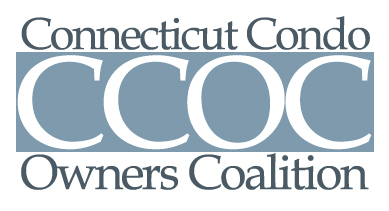Feds Backing Banks Over Condos In Foreclosures
The Federal Housing Finance Agency (FHFA) is expressing concern about state statutes that allow community associations to obtain lien priority over first mortgages for unpaid association assessments.
By asking a federal court to intervene, FHFA is trying to bail out mortgage servicers that have failed to fulfill basic contractual obligations to Fannie Mae and Freddie Mac.
“Make no mistake, FHFA is bailing out mortgage servicers that lacked the competency to meet basic contractual requirements and follow established rules of civil procedure,” said Thomas M. Skiba, CAE, chief executive officer of Community Associations Institute (CAI).
“By suing community associations, FHFA is trying to protect Fannie and Freddie at the expense of association homeowners. That’s unfair, unconscionable and unacceptable.”
For years, CAI has joined with federal regulators (as well as Fannie Mae) to call on mortgage servicers to secure and maintain vacant and abandoned properties and meet their financial obligations to community associations and their homeowners. These calls and regulatory directives have been largely ignored with impunity by mortgage servicers.
“In one case, Fannie Mae’s servicers failed to respond to legal service of process and, despite mandatory notification pursuant to Nevada law, failed to appear at a foreclosure auction to protect Fannie Mae’s financial interests,” Skiba continued. “It says a lot about FHFA priorities that the agency now is suing to recoup Fannie Mae’s losses from the pockets of community association homeowners, rather than suing servicers for breach of contract. Someone must stand up for homeowners and that’s what CAI will continue to do.”
FHFA is nothing if not strategic, electing to release its statement on the heels of a lawsuit filed by the agency in federal court in Nevada. FHFA is seeking a determination that an HOA’s foreclosure sale is invalid and contrary to federal law because it would extinguish Fannie Mae’s property rights. However, the right of foreclosure FHFA is seeking to invalidate nationwide is permitted by law in Nevada, 21 other states and the District of Columbia.
FHFA asserts that it is compelled by law to file suit to protect Fannie Mae’s and Freddie Mac’s rights and to prevent taxpayers from incurring losses. Skiba said the FHFA statement “blatantly ignores” Fannie Mae and Freddie Mac rights under the respective seller/servicing guides that allow these mammoth enterprises to recover losses resulting from the mismanagement of mortgage servicers. Despite a range of available remedies, FHFA has opted to sue to invalidate state priority lien statutes rather than enforcing its rights under contract.
“It’s incredulous that a Federal agency would sacrifice the interests of 65 million taxpayers who live in community associations to protect the very banks all American taxpayers spent billions of dollars to bail out during the economy-shattering housing crisis,” Skiba said. “And it’s shocking for FHFA to attack state laws that have been in place for more than 100 years of precedent and practice. Fact is, by paying their association assessments and protecting property values, these homeowners protect the value of lenders’ assets in associations. Yet, FHFA is enabling the bad behavior of mortgage servicers who don’t spend a dime to maintain and protect their own property investments.”
CAI will continue to monitor FHFA’s hostile actions against the right of community associations to secure priority liens on properties within their boundaries.”
Get more information on the priority lien issue, including a detailed CAI statement and a map of states with priority lien statutes. See the Nevada Supreme Court decision.
With more than 33,000 members dedicated to building better communities, CAI works in partnership with 60 chapters to provide information, education and resources to community associations and the professionals who support them. CAI’s mission is to inspire professionalism, effective leadership and responsible citizenship—ideals reflected in communities that are preferred places to call home. Visit www.caionline.org or call (888) 224-4321.






Leave a Reply